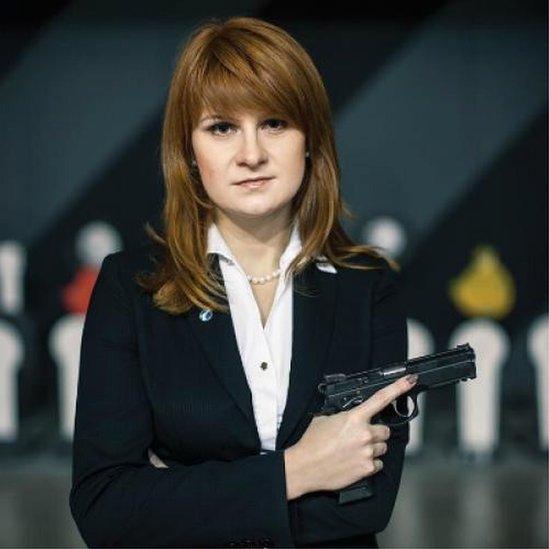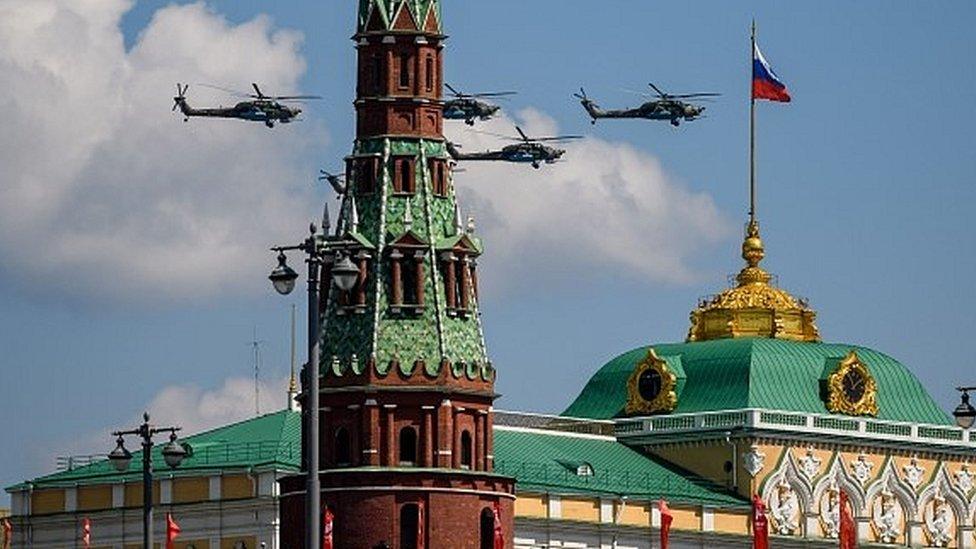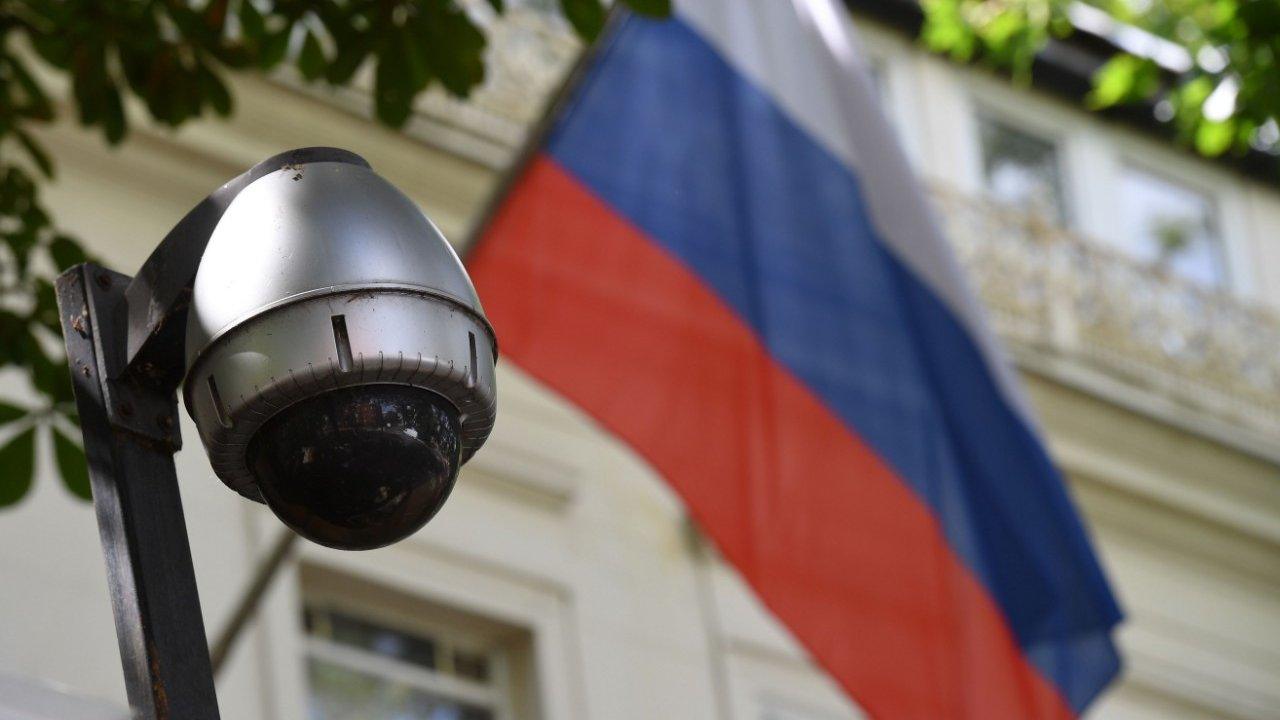Russia report: What would tougher spy laws mean for UK?
- Published

Maria Butina developed a reputation in Russia for her love of guns

After the UK government is accused of underestimating the threat of Russian interference, ministers are considering strengthening security laws to require all foreign agents to register in the UK in future. What might that involve and what are the challenges?
The Russia report's stark outline of a campaign of influence and interference has led to talk of new powers.
In July 2018, the FBI pounded on the door of an apartment in Washington DC.
Moments later, a young Russian woman called Maria Butina was led away in handcuffs.
Over previous years, Butina had made deep inroads into political circles in the United States.
A gun activist, she had made extensive contacts, especially on the right of the political spectrum and helped to organise events and sent information back to a contact in Moscow.
But was she a spy? Butina herself always denied it and she was not doing what we used to think of as spying - working undercover and stealing secrets.
She was not working secretly and nor was she dealing with classified information.
But the US authorities still considered her a threat and the FBI alleged she was working to advance Moscow's interests.
At the end of 2018, she pleaded guilty to being directed by a Russian government official to "establish unofficial lines of communication with Americans having power and influence over American politics".
But if there was a Maria Butina operating in the UK today, there would technically be nothing the authorities could do about it, according to UK officials.
Deep cover
The US has a law called the Foreign Agent Registration Act, passed in the run-up to the Second World War but recently resurrected to deal with concerns about foreign nations using individuals to carry out "influence operations".
If anyone (other than a diplomat) is working on behalf of a foreign government, including a US person openly lobbying for them, they need to register. If someone fails to, for instance because they are trying to work covertly, they can be arrested.
The UK has no equivalent. This is considered important because the nature of what is considered spying is changing.
Increasingly, the concern is less about the theft of classified information (which is covered by existing laws) and more about other activity involving influence.
In evidence given to the Russia Report, then-head of MI5, Andrew Parker, explained the problem was that at the moment an individual can be operating undercover on behalf of the Kremlin's intelligence service but nothing can be done until they actually acquire secret material.
This all matters because the sense of what behaviour constitutes a national security risk is changing.
Notions of spies only working under cover of being diplomats in an embassy are out of date.
Russia has long used a particular type of spy called an "illegal" - the name deriving from the fact they do not have diplomatic immunity if they are caught.
From the days of the Soviet Union, Moscow specialised in a particular kind of deep cover illegal where individuals, sometimes couples, were not just given new identities but new nationalities - so a Russian Konon Molody became Canadian businessman Gordon Lonsdale in the 1960s and Lidiya Guryeva became American Cindy Murphy living in New Jersey in the 2000s. Murphy, along with another group of illegals, was arrested in 2010 in the US.

Anna Chapman, who was married to a Briton for four years, was stripped of her UK citizenship in 2010
Among them was Anna Chapman who had also lived in London.
She was part of a new breed of what the FBI called True Name Illegals who were openly Russian and used their real identities but were secretly working for Moscow's intelligence service to build contacts and influence.
Soon after that arrest, UK authorities tried to deport a Russian called Ekaterina Zatuliveter who was working in parliament (and having an affair with a Liberal Democrat MP and a NATO official).
But, in an embarrassment for MI5, it lost the case to deport her. Despite that, the concern remains about Russians infiltrating political life.
The interference in the US election through social media posts and even the organising of protests through false identity Facebook accounts also showed that Russia was interested in not just collecting secret information but also trying to shape behaviour.
Compromising information
The Butina case showed the next step in Russia's evolution of intelligence tactics from 2010.
Rather than send operatives over, Russia can sometimes co-opt Russians or others who have useful contacts and make use of them through businessmen or oligarchs rather than being run directly through the intelligence services.
These individuals have the ability to meet people in politics or business and to gather information, perhaps even compromising information.
They can also seek to organise events and try to direct policy in a certain direction.
This kind of activity is certainly hard to define and trying to work out when it has crossed a line and who was behind it has often been a challenge in the US.
There has been talk for some months about introducing new powers to deal with it in the UK but the question is whether the Russia Report will now see the impetus for something to actually happen.
- Published22 July 2020

- Published21 July 2020

- Published21 July 2020